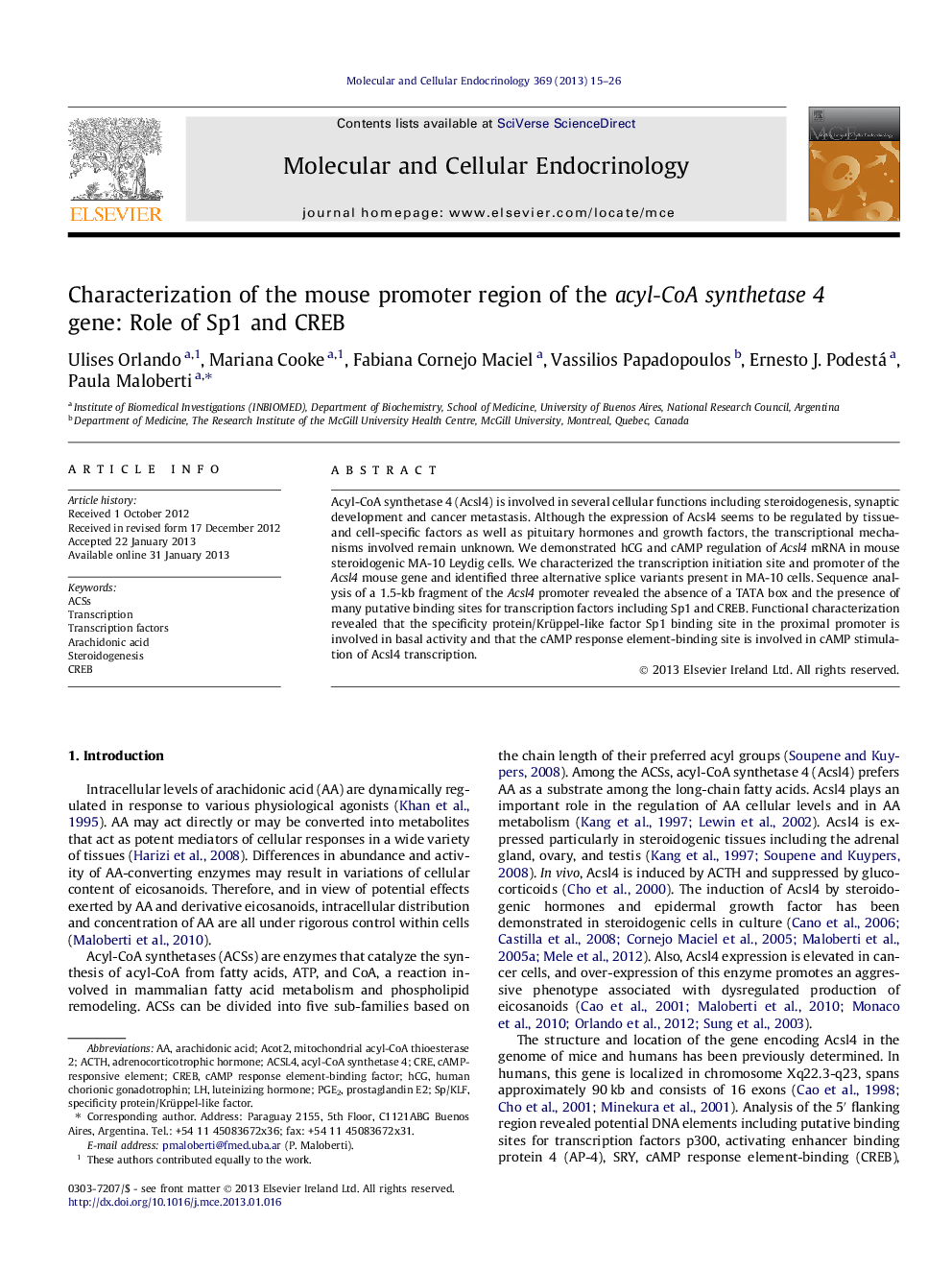| Article ID | Journal | Published Year | Pages | File Type |
|---|---|---|---|---|
| 2196197 | Molecular and Cellular Endocrinology | 2013 | 12 Pages |
Acyl-CoA synthetase 4 (Acsl4) is involved in several cellular functions including steroidogenesis, synaptic development and cancer metastasis. Although the expression of Acsl4 seems to be regulated by tissue- and cell-specific factors as well as pituitary hormones and growth factors, the transcriptional mechanisms involved remain unknown. We demonstrated hCG and cAMP regulation of Acsl4 mRNA in mouse steroidogenic MA-10 Leydig cells. We characterized the transcription initiation site and promoter of the Acsl4 mouse gene and identified three alternative splice variants present in MA-10 cells. Sequence analysis of a 1.5-kb fragment of the Acsl4 promoter revealed the absence of a TATA box and the presence of many putative binding sites for transcription factors including Sp1 and CREB. Functional characterization revealed that the specificity protein/Krüppel-like factor Sp1 binding site in the proximal promoter is involved in basal activity and that the cAMP response element-binding site is involved in cAMP stimulation of Acsl4 transcription.
► We cloned and functionally characterized the promoter of the mouse Acsl4 gene. ► Acsl4 transcriptional regulation in steroidogenic cells. ► Sp1 is involved in basal activity and CREB in cAMP stimulation of Acsl4 transcription.
